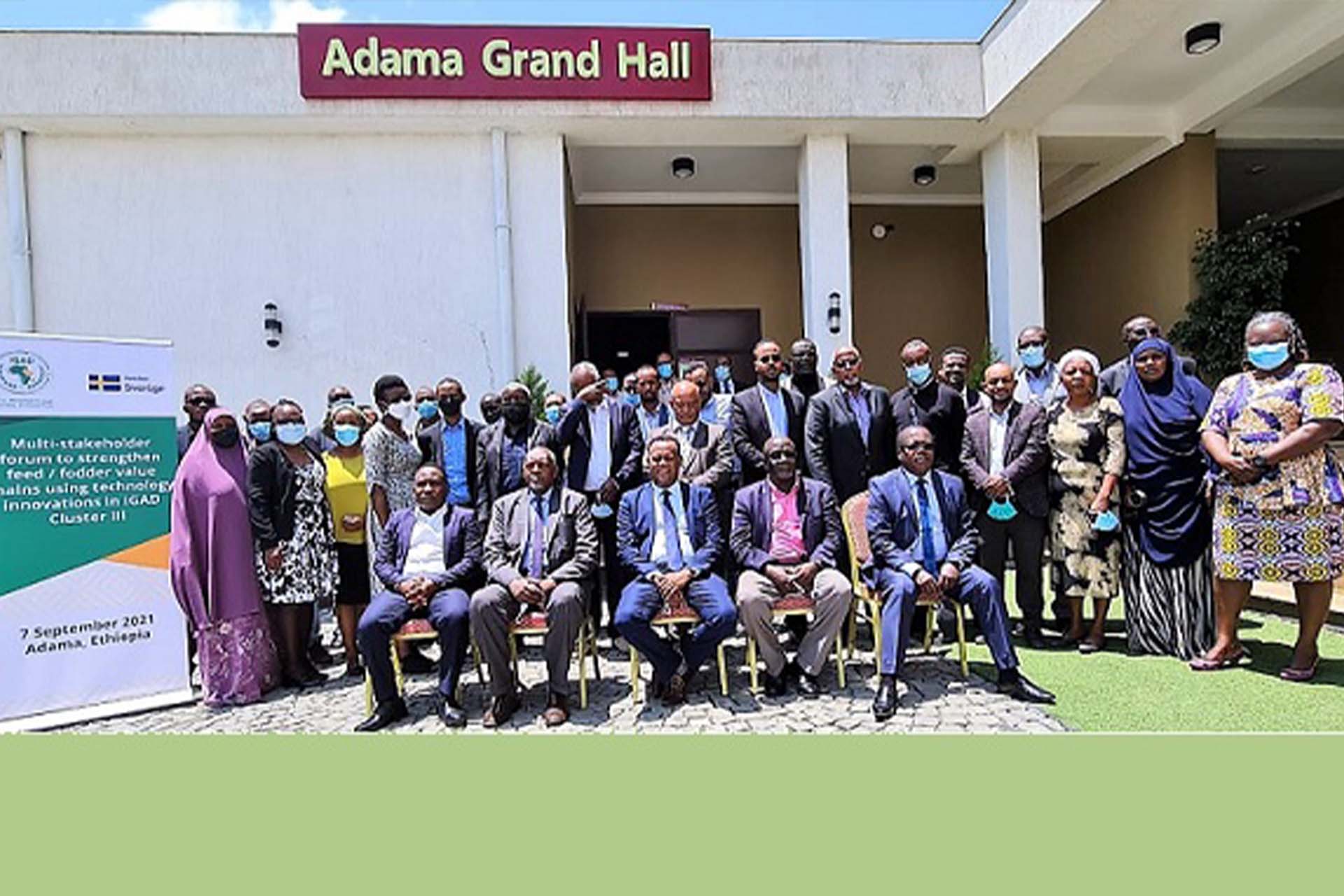
7th September, 2021(Adama, Ethiopia): Recurrent droughts, floods and other climate-related disasters have eroded the livelihoods of communities in IGAD cluster III (Mandera ecosystem of Ethiopia, Kenya and Somalia). It has resulted in chronic food insecurity, protracted competition and conflicts over livestock and access to pasture and water resources and unwarranted loss of human life. IDDRSI PCU in collaboration with ICPALD, planned a multi stakeholder platform meeting to share innovations and technologies along the feed and fodder value chains. The one-day physical meeting was opened by H.E. Dr. Fikru Regassa, State Minister of Livestock, MoA, republic of Ethiopia. He emphasized on the importance of supporting fodder production in the ASALs to ensure sustainable livestock production. The meeting was attended by 44 participants from representative farmer/pastoralist groups, technical experts from Kenya, Ethiopia and Somalia, VSF-G, GEWDO, IGAD secretariat and ICPALD. The meeting made the following recommendations:
- Harmonize feed safety standards and guidelines to regulate quality feed production and processing to boost regional feed (fodder) trade.
- Strengthen market linkage between fodder producer organizations (production areas), feed users and manufacturers. Furthermore, strengthen the existing established feed associations and facilitate data sharing amongst stakeholders.
- Ethiopia to update country animal feed inventory, Somalia and Kenya to conclude on the animal feed inventory so as to establish the status of demand and supply.
- Enhance coordination through the established range and fodder platform and enhance south to south learning between MS and other regions.
- Scale up and scale out feed (fodder) technologies and innovation as well as value added products. In addition to incorporate advisories emanating from the early warning tools (predictive tools, PLEWS etc.)
- Integrate early warning tool in their national programs to attract national funds.
- Countries with support from IGAD should work on improving livestock productivity to avoid overgrazing/overstocking to be done through improved feed quality and as well as livestock breeds.
- Upscale commercial fodder production through by incentivizing public private partnerships and establishment of associations to ensure affordable and sustainable supply.
- Strengthen resource mobilization at national level and development partners to support livestock feed.

